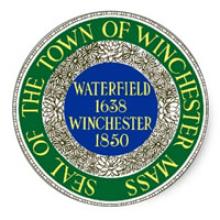Winchester, Massachusetts, Defeats Plan for Town and School Technology Fund
Winchester, Massachusetts, recently offered voters the chance to create a special fund earmarked for school and government technology infrastructure. The question came during the special election to fill an empty Senate seat vacated by Secretary of State John Kerry. The technology fund proposal, to be funded by taxpayers, did not pass but offers an interesting approach for communities seeking to ensure community anchor institutions have the connections they need.
Wicked Local Winchester reported on the "technology stabilization fund:"
Under the proposal, the fund would receive $350,000 from taxpayers in fiscal year 2014. That figure would increase by 2.5 percent each year. Each Winchester household would pay approximately $50 in taxes into the fund in the fiscal year that begins July 1, according to the proposal.
The fund cannot be used for any end-user devices, including computers, laptops or classroom technology like smartboards. Instead, the fund will cover upgrading and maintaining the town and school computer network.
Opposed community members criticized a lack of detailed plans for the fund and challenged whether it would save public dollars. In the days before the vote, some council members publicly questioned the need for technology improvements.
The proposal failed 54 percent to 46 percent on June 25th. Wicked Local Winchester noted that several voters they met at the polls did not know about the proposal before the election. Support seemed strong from those voting yes:
“I think if we’re going to have an excellent school system, we need the technology to support it,” resident Anne Poskitt said after voting at the Jenks Center.
Resident Patricia Shea expressed similar sentiments after voting at the Lynch School, saying that she feels strongly about the importance of technology because she has three children who attended Winchester schools.
“If this is what we have to do to [improve technology], I support it,” she said.
Also from Wicked Local:



